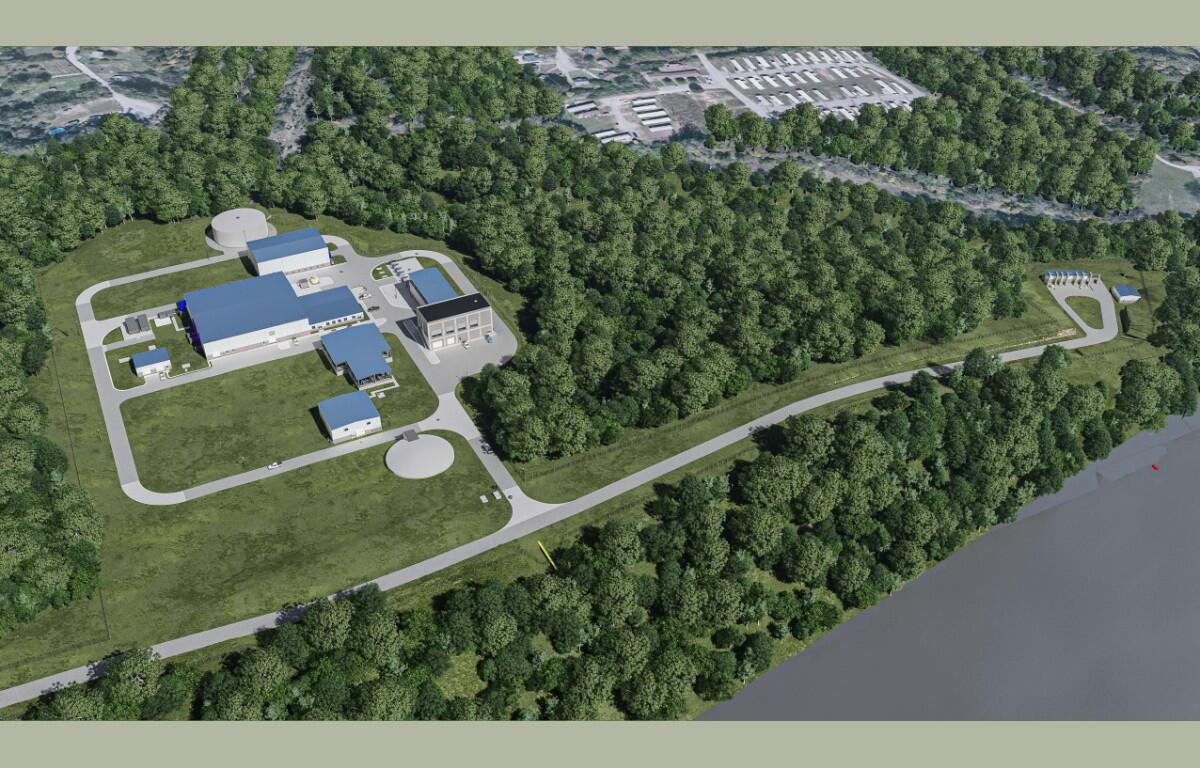CLARKSVILLE, TN (CLARKSVILLE NOW) – A growing number of factories in the Clarksville-Montgomery County Industrial Park rely on a steady flow of water for cooling systems and noncontact cleaning. But in most cases, that water doesn’t need to be “potable,” which is thoroughly cleaned and treated drinking water.
“There’s no reason Google should be cooling servers with potable water,” VP for Industrial Development Josh Ward said at a recent meeting of the Industrial Development Board.
To save resources and reduce the strain on the Clarksville Water Treatment Plant, the IDB and Clarksville Gas & Water are taking steps to create an Industrial Water Reuse Plan, with the goal of capturing water near the park and sending it back for industrial use.
“We’re spending tremendous amounts of money to send water to the Water Treatment Plant (for treatment), then to the Industrial Park,” said EDC CEO Buck Dellinger.
Saving money, saving water
Currently, the Clarksville Water Treatment Plant can generate up to 30 million gallons of potable water per day. The new North Clarksville Water Treatment Plant under construction on Barge Point Road will add another 12 million gallons to that capability in Phase 1, which should be complete in the summer of 2026. That plant can add two more phases, providing up to 12 million gallons each to total 36 million.
The Industrial Park and other industry demands are currently using 2.4 million gallons per day of potable water from CGW, while residential demand is 10.8 million gallons per day.
As communities grow to certain points and get closer to their water capacities, the Tennessee Department of Environment and Conservation mandates building additional plants. “We like to be ahead of that instead of waiting for the state to tell us when we have to do something,” Clarksville Gas & Water General Manager Mark Riggins told Clarksville Now.
Knowing that a new sewer plant may be required by 2030, Riggins said they’ve been looking for ways to save and conserve water, including reusing water. “It’s a hot item in our industry right now,” Riggins said. It’s mainly being used in Western states where there are severe water shortages. “We are really blessed to have the Cumberland River,” he said.
Some areas of the country are even looking at water reuse for potable water – but not here. “This part of the country does not have an appetite for that,” Riggins said with a chuckle.
There was even talk of pumping treated effluent from the Wastewater Treatment Plant back for industrial use, rather than into the Cumberland.
Reusing industrial water
What they’ve landed on is the idea to take wastewater from the Industrial Park area, including residential areas, and capturing that with a facility that can treat the wastewater and turn it into “process water,” instead of potable water, and send it back to the Industrial Park, Riggins said.
This proposal would have the industries re-use their water, treated but not to the point of being drinkable. “It would significantly reduce the amount of potable water they’re using,” Dellinger said.
He said some companies at the park are interested in helping to pay for the project. Also, CGW has been awarded a $425,000 grant from TDEC for non-potable water reuse. A feasibility study will be conducted, and that should be complete in February 2026.
Christian Brown contributed to this report.
| DON’T MISS A STORY: Sign up for the free daily Clarksville Now email newsletter


